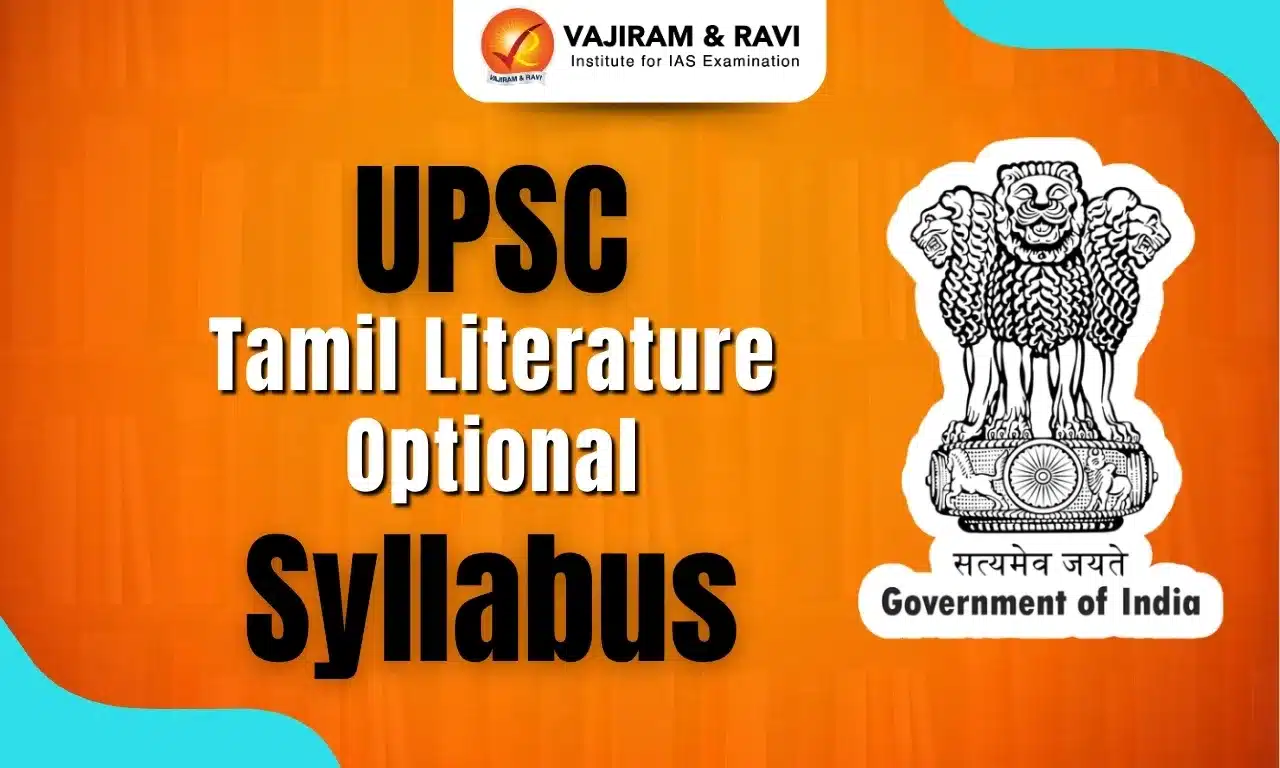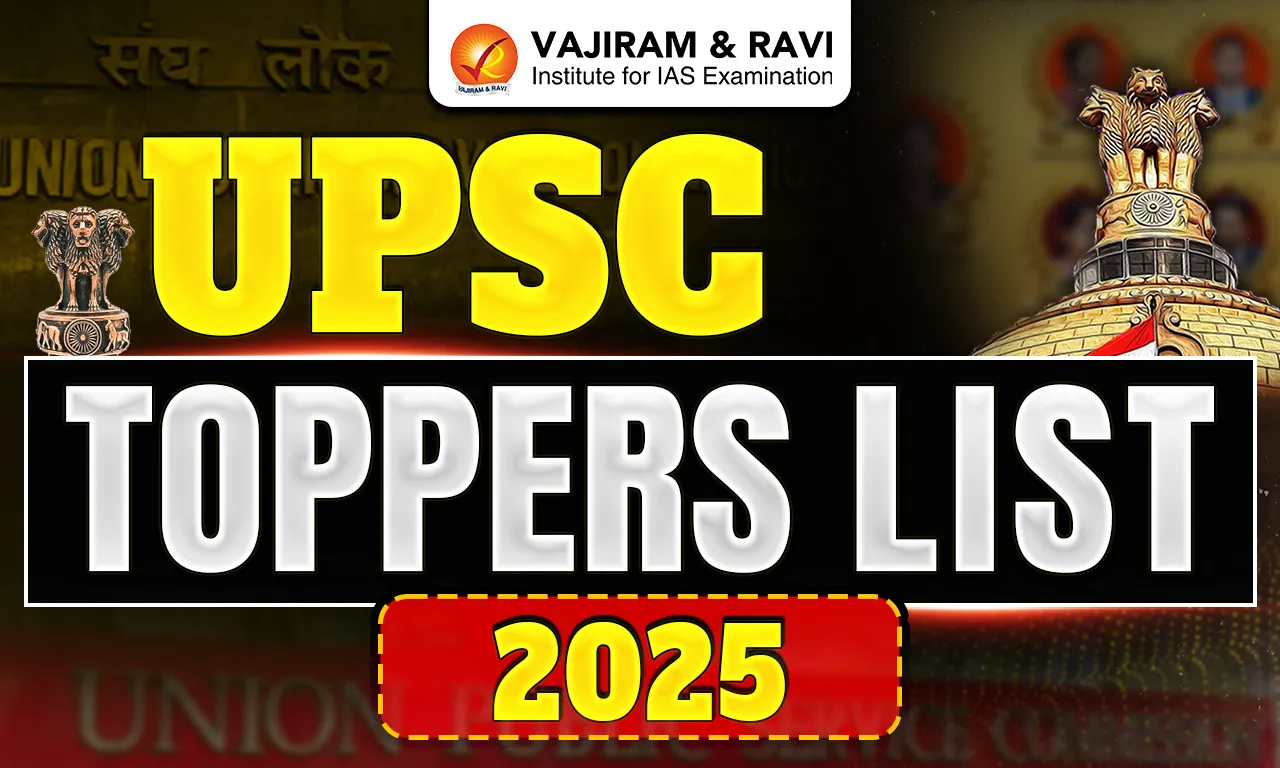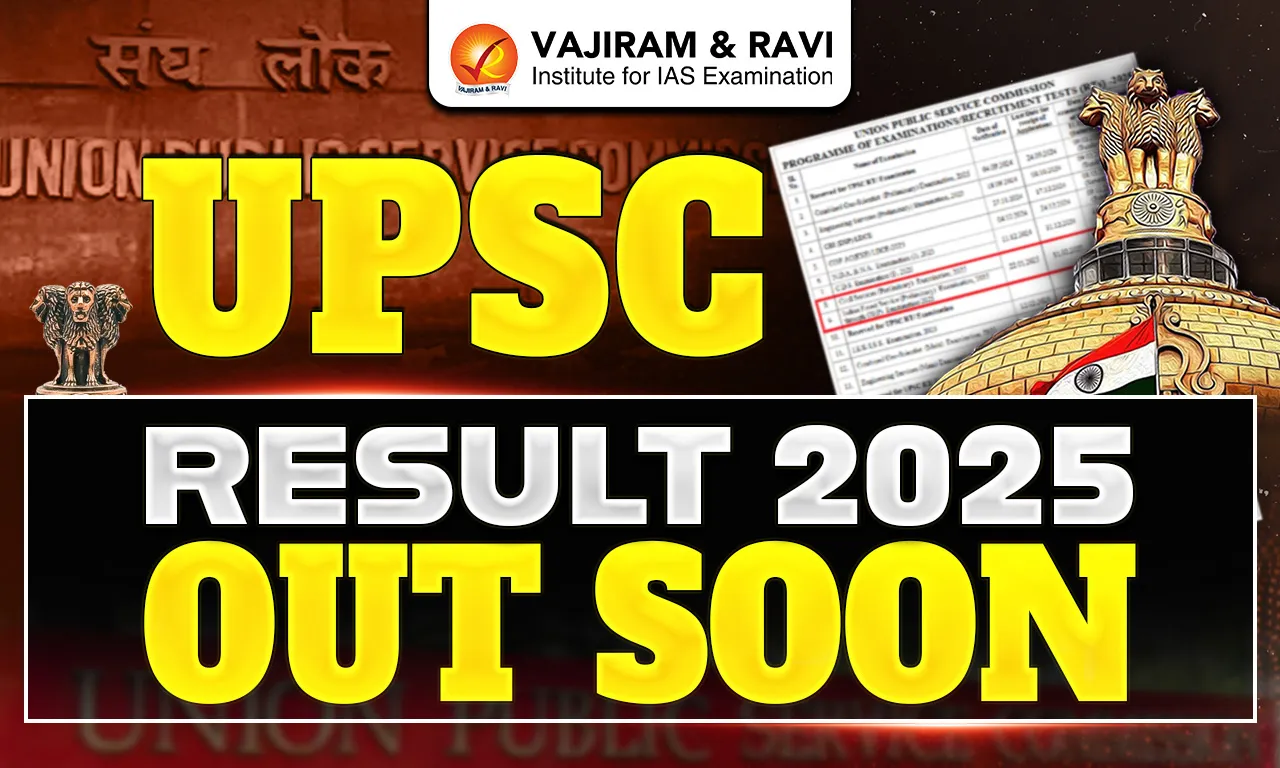The UPSC Tamil Literature Optional Syllabus 2026 offers a deep understanding of Tamil language, literature, and culture. It is a highly preferred subject among aspirants with a strong command of Tamil and an academic background in literature. The syllabus is split into two papers: Paper 1, which deals with the evolution of Tamil language, literary theories, and classical forms, and Paper 2, which focuses on the critical study of major literary texts across periods.
UPSC Tamil Literature Optional Syllabus 2026 Overview
The UPSC Tamil Literature Optional Syllabus 2026 emphasizes both historical development and critical appreciation of Tamil literature. Paper 1 covers the history of Tamil language, phonetics, grammar, and critical theory, making it essential for candidates to understand Tamil's structural features. Paper 2, on the other hand, evaluates the major literary texts from Sangam literature to modern Tamil poetry and prose. Both papers aim to test the candidate's analytical, interpretive, and comparative literary skills. The total weightage is 500 marks, with each paper accounting for 250 marks.
| UPSC Tamil Literature Optional Syllabus 2026 Overview | ||
| Mains Papers | Subject | Marks |
|
Paper VI |
Tamil Literature Optional Paper 1 |
250 |
|
Paper VII |
Tamil Literature Optional Paper 2 |
250 |
|
TOTAL |
500 |
|
|
Time Duration |
3 hours |
|
UPSC Tamil Literature Optional Syllabus 2026 for Paper 1
UPSC Tamil Literature Optional Syllabus 2026 for Paper 1 focuses on the linguistic evolution of Tamil and its literary forms. Section A includes the history of the Tamil language, including its position among Dravidian languages, influence from other languages, and its development through the Sangam and Pallava periods. It also covers grammar, tense markers, and the distinction between spoken and literary Tamil.
Section B emphasizes literary criticism, approaches to comparative literature, and folk traditions like ballads, proverbs, and myths. It also highlights Tamil journalism, translation studies, and the cultural evolution of Tamil society through literature and arts.
| UPSC Tamil Literature Optional Syllabus 2026 for Paper 1 | |
| Section | Topics |
| Section-A | |
|
History of Tamil Language |
Major Indian Language Families—The place of Tamil among Indian Languages in general and Dravidian in particular—Enumeration and Distribution of Dravidian languages |
|
The language of Sangam Literature—The language of medieval Tamil: Pallava Period only—Historical study of Nouns, Verbs, Adjectives, Adverbs—Tense markers and case markers in Tamil |
|
|
Borrowing of words from other languages into Tamil—Regional and social dialects—the difference between literary and spoken Tamil |
|
|
History of Tamil Literature |
Tolkappiyam-Sangam Literature—The division of Akam and Puram—The secular characteristics of Sangam Literature—The development of Ethical literature—Silappadikaram and Manimekalai |
|
Devotional Literature (Alwars and Nayanamars) |
|
|
The bridal mysticism in Alwar hymns—Minor literary forms (Tutu, Ula, Parani, Kuravanji) |
|
|
Social factors for the development of Modern Tamil Literature; Novel, Short Story and New Poetry—The impact of various political ideologies on modern writings |
|
| Section-B | |
|
Recent trends in Tamil Studies |
Approaches to criticism: Social, psychological, historical and moralistic—the use of criticism—the various techniques in literature; Ullurai, Iraicchi, Thonmam (Myth) Otturuvagam (allegory), Angadam (Satire), Meyappadu, Padimam (image), Kuriyeedu (Symbol), Irunmai (Ambiguity)—The concept of the comparative literature—the principle of comparative literature |
|
Folk literature in Tamil |
Ballads, Songs, proverbs and riddles—Sociological study of Tamil folklore |
|
Uses of translation—Translation of Tamil works into other languages—Development of journalism in Tamil |
|
|
Cultural Heritage of the Tamils |
Concept of Love and War—Concept of Aram—the ethical codes adopted by the ancient Tamils in their warfare—customs beliefs, rituals, modes of worship in the five Thinais |
|
The Cultural changes as revealed in post-Sangam literature—cultural fusion in the medieval period (Jainism and Buddhism) |
|
|
The development of arts and architecture through the ages (Pallavas, later Cholas and Nayaks) |
|
|
The impact of various political, social, religious and cultural movements on Tamil Society |
|
|
The role of mass media in the cultural change of contemporary Tamil society |
|
UPSC Tamil Literature Optional Syllabus 2026 for Paper 2
UPSC Tamil Literature Optional Syllabus 2026 for Paper 2 consists of critical textual analysis of selected works across time periods. Section A covers ancient and devotional literature, including texts like Kuruntokai, Purananuru, Silappadikaram, and Thirukkural. Section B covers modern Tamil literature, including the works of Bharathiar, Bharathidasan, and C.N. Annadurai, among others.
Candidates are expected to analyze texts from poetry, novels, short stories, drama, and folk literature. A strong understanding of themes, style, imagery, and social context is vital for scoring well in this paper.
UPSC Tamil Literature Optional Booklist
To effectively prepare, candidates must rely on below mentioned UPSC Tamil Literature Optional Booklist:
- "History of Tamil Literature" by M. Varadarajan – An essential reference for literary history.
- "Tamil Moli Varalaru" by M.S. Purnalingam Pillai - Covers linguistic development and grammar.
- "Thirukkural" by Thiruvalluvar - A moral-philosophical classic that is vital for Paper 2.
- "Silappatikaram" & "Manimegalai" - Classical epics for understanding early Tamil narratives.
- "Kamba Ramayanam" by Kambar - Offers a rich poetic style and classical literary form.
- "Modern Tamil Literature: A Primer" by A. Sivasubramanian - Great for understanding contemporary literary movements.
- Works of Bharathiar and Bharathidasan - These are indispensable for their poetic and revolutionary value.
- Translation Theory by Susan Bassnett - Useful for Paper 1 translation components.
- "Naalu Kavignar Naalu Kavithai" by Na. Muthukumar – Helps grasp modern poetic devices.
Last updated on March, 2026
→ UPSC Notification 2026 is now out on the official website at upsconline.nic.in.
→ UPSC IFoS Notification 2026 is now out on the official website at upsconline.nic.in.
→ UPSC Calendar 2026 has been released.
→ UPSC Final Result 2025 is expected to be released soon.
→ UPSC will release the UPSC Toppers List 2025 with the Civil Services final result on its official website.
→ Check out the latest UPSC Syllabus 2026 here.
→ Join Vajiram & Ravi’s Interview Guidance Programme for expert help to crack your final UPSC stage.
→ UPSC Mains Result 2025 is now out.
→ UPSC Prelims 2026 will be conducted on 24th May, 2026 & UPSC Mains 2026 will be conducted on 21st August 2026.
→ The UPSC Selection Process is of 3 stages-Prelims, Mains and Interview.
→ Prepare effectively with Vajiram & Ravi’s UPSC Prelims Test Series 2026 featuring full-length mock tests, detailed solutions, and performance analysis.
→ Enroll in Vajiram & Ravi’s UPSC Mains Test Series 2026 for structured answer writing practice, expert evaluation, and exam-oriented feedback.
→ Join Vajiram & Ravi’s Best UPSC Mentorship Program for personalized guidance, strategy planning, and one-to-one support from experienced mentors.
→ Check UPSC Marksheet 2025 Here.
→ UPSC Toppers List 2024 is released now. Shakti Dubey is UPSC AIR 1 2024 Topper.
→ Also check Best UPSC Coaching in India
UPSC Tamil Literature Optional Syllabus 2026 FAQs
Q1. Is Tamil Literature a good optional subject in UPSC?+
Q2. Is prior academic background in Tamil necessary?+
Q3. Can the paper be written in Tamil?+
Q4. Which paper is more analytical, Paper 1 or Paper 2?+













